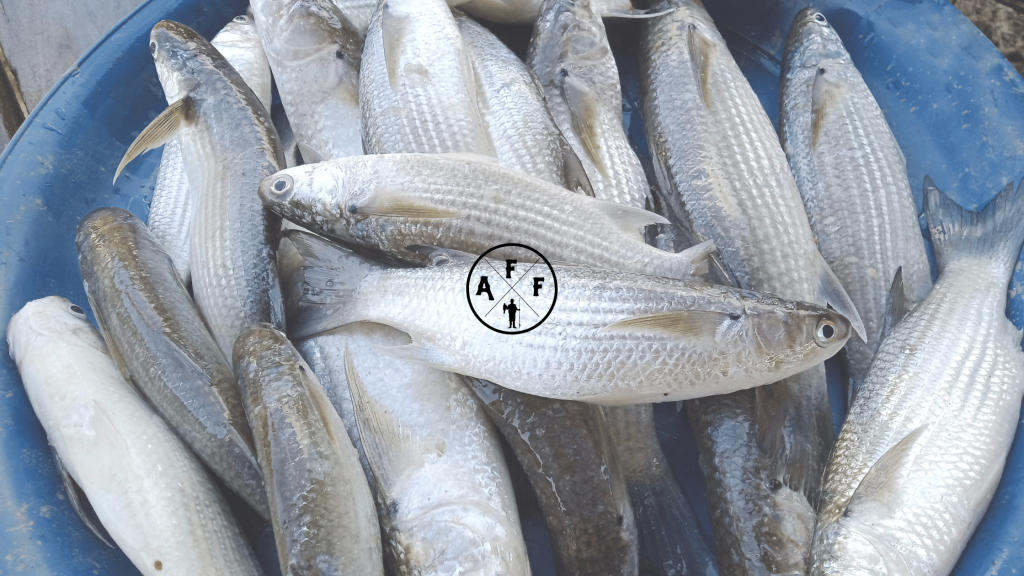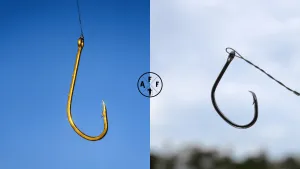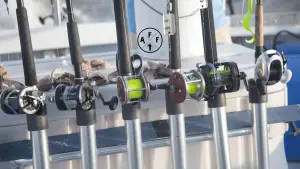
Mullet is a type of fish that belongs to a family encompassing dozens of species and can be found in oceans, bays, and even freshwater habitats. It’s not uncommon for people to wonder whether or not mullet is good to eat, and there are various factors that contribute to answering this question. As a bottom feeder, mullet doesn’t always have the most pristine culinary reputation, but it has been enjoyed as a food source in various regions for a long time.
In the southern United States, mullet has long been a staple in local cuisine and is often used as the primary fish for fish fry events. Despite its sometimes tarnished image in other parts of the world, mullet is a popular and tasty option in the South. On top of this, mullet is known for its low mercury content, making it a safer choice for those concerned about contaminants in their seafood.
Of the over 70 different varieties of mullet available in the United States, most are safe to eat. The key aspect to consider here is the quality of the water source where the fish was caught – if it’s clean and safe, then your catch of the day should be perfectly fine for consumption. Overall, mullet offers a unique taste experience for seafood lovers seeking something different.
Mullet Fish Overview
Species and Habitats
As a fishing enthusiast, I’ve come across various species of mullet fish. In the family Mugilidae, there are over 80 species, including grey mullet, red mullet, and striped mullet. Mullet fish can be found in both saltwater and freshwater habitats across the world. They prefer coastal areas, estuaries, and even some river systems.
Nutritional Profile
Whenever I eat mullet, I know that I am getting a healthy, low-mercury fish. The dark, dense meat of mullet is packed with omega-3 fatty acids which can contribute to heart health and a better immune system. Mullet is rich in protein, Vitamin B12, and minerals like phosphorus and selenium. Here is a brief nutritional profile for a 100g serving:
- Calories: 117
- Protein: 20.6g
- Fat: 3.6g
- Omega-3 fatty acids: 188mg
- Vitamin B12: 3.28μg
- Phosphorus: 203mg
- Selenium: 41.8μg
Please consider my perspective for a Mullet Fish Overview in your article.
Culinary Uses of Mullet
As an oily fish with a unique, strong, and fishy taste, mullet has an important role in various cuisines around the world. In this section, I’ll share my experience with the culinary uses of mullet and will provide insights into preparing mullet and some popular mullet dishes.
Preparing Mullet
When preparing mullet, I find it crucial to remove its scales and clean the fish thoroughly. Due to its innate oiliness, I prefer to remove the dark, fatty layer under the skin before cooking to reduce the fishy flavor. Mullet can be bony, so I recommend being careful when eating it or deboning during the preparation process. Cooking methods for mullet vary from grilling and frying to baking and pan-searing.
Remember, the taste of mullet can be divisive. While some people enjoy its unique flavor, others might find it fishy or overpowering. Keep this in mind when serving this fish to others.
Popular Mullet Dishes
Mullet is a versatile fish that appears in a variety of dishes from different cultures. Some popular mullet dishes are:
- Smoked mullet: A traditional method of preserving mullet is by smoking it, and the smokiness helps tone down the strong fishy flavor. It can be served as an appetizer or used in various recipes.
- Mullet Escabeche: A Mediterranean dish, this preparation consists of pan-frying the mullet and marinating it in vinegar, garlic, and spices. The tangy marinade complements the fish’s rich flavor quite well.
- Mullet Stew: Mullet can be used as the primary ingredient in a fish stew, combining the distinct flavor of mullet with a rich and hearty broth.
- Grilled Mullet: Seasoned with herbs and spices, grilled mullet offers a lighter, less oily texture with a crispy skin.
By exploring different preparations and dishes, you can truly appreciate the unique taste of mullet in your culinary journey.
Health Benefits and Concerns
Omega-3 Fatty Acids
As an oily fish, mullet is rich in omega-3 fatty acids, which provide me with various health benefits. These fatty acids are known to improve heart health and reduce inflammation. Mullet is also a good source of essential nutrients such as niacin, vitamin B6, and phosphorus.
Mercury and Contaminants
However, there may be concerns about toxins in mullet, depending on their habitat. I should be aware that mullet can carry toxic chemicals like PCBs, dioxins, and heavy metals from polluted water habitats. These contaminants have been linked to increasing the risk of cancer, brain degeneration, liver damage, and nervous system disorders. Pregnant women, nursing mothers, and young children should be particularly cautious as some contaminants, like PCBs, may also affect fetal development.
To reduce my exposure to these contaminants, it would be best for me to source mullet from less polluted waters or consume it in moderation.
Sustainability and Ethical Considerations
Fishing Practices
I learned that mullet is a type of ray-finned fish with meaty and oily flesh. When considering its sustainability, it’s essential to know that not all mullet fishing practices are the same. Some fisheries may have human rights violations or negative environmental impacts. To make an informed choice, I recommend looking for mullet certified by organizations like the Marine Stewardship Council (MSC), which ensures that the fish is sourced sustainably.
Aquaculture Alternatives
As an alternative to wild-caught mullet, there are aquaculture options that can be more sustainable and have fewer ethical concerns. These facilities aim to reduce the environmental impact and ensure better fish welfare. However, it’s still important to research the specific aquaculture practices employed before making a decision. When done responsibly, aquaculture can provide a valuable source of sustainable and ethical mullet for consumption.
Frequently Asked Questions
How does mullet taste?
In my experience, mullet is an oily fish with a strong, fishy taste. Its meat is darker in color and denser than flaky fishes like snapper or salmon. It is also a bony fish, so you may encounter a stray bone when enjoying a fillet.
Best way to cook mullet?
I find that there are several ways to cook mullet, including frying, baking, and sautéing. My personal favorite is pan-frying mullet in butter or olive oil and seasoning it with salt and pepper. Another option is to bake the fish with some herbs and lemon for a lighter taste.
Does mullet have health benefits?
Yes, mullet is a great source of lean protein, vitamins, minerals, and omega-3 fatty acids. Consuming mullet can help improve heart health, reduce inflammation, and provide essential nutrients. The omega-3 fatty acids found in mullet can also protect against certain diseases, such as heart disease and cancer.
Are there size limits on mullet?
Mullet size limits vary depending on the location and local regulations. It’s essential to verify the fish’s legal size before catching and keeping mullet in your area. Researching regional fishing guidelines will ensure that you are following proper measures.
Is mullet expensive?
Mullet is generally considered an affordable fish. Prices may vary depending on its availability, location, and whether it is farmed or wild-caught. Compared to other popular fish species like salmon or tuna, mullet often costs less, making it an economical option.
Good mullet recipes?
I have come across several delicious mullet recipes, and some of my favorites include:
- Pan-Fried Mullet: Lightly coat the fillets in seasoned flour, fry them in butter or olive oil, and serve with a squeeze of lemon juice and some fresh herbs.
- Mullet en Papillote: Wrap the fish in parchment paper with thinly sliced vegetables, herbs, and a splash of white wine, then bake it until tender and fully cooked.
- Grilled Mullet: Marinate the fillets with a mixture of olive oil, lemon juice, garlic, and herbs, then grill them on a hot grill until they are cooked through and slightly charred.
For more posts on mullet, check out the pages below










